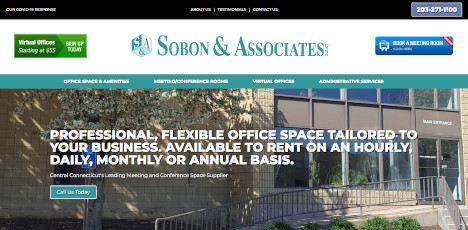
Responsibilities of a Web Developer
As a web developer, we pride ourselves on our technical abilities, problem-solving capabilities, and the ability to bring digital visions to life. Nevertheless, one frequently neglected aspect of our occupation is the responsibility we bear when it concerns transitioning tasks between service providers.
Whether you're an independent professional moving on to a new opportunity or a company employee handing off a project to an in-house team, it's important to recognize the value of correct understanding transfer and paperwork. The digital landscape is ever-evolving, and the web applications we build today will likely need upkeep, updates, and enhancements in the future. Without correct paperwork and guidelines, the next team or private entrusted with the job might discover themselves lost in a labyrinth of code, having a hard time to understand the complexities and reasoning behind the implementation. Imagine being handed the keys to a complex machinery without a user manual or guidance.
The aggravation and lost time spent understanding the inner functions could be harmful to the project's success and the client's total experience. As web developers, we have an ethical obligation to make sure a smooth transition, minimizing disturbances and making the most of the capacity for ongoing success. Providing extensive documents and directions is not just an expert courtesy; it's a fundamental obligation that should be instilled in our advancement practices. Here are a few reasons why this handoff procedure is so crucial: Ensuring Continuity and Maintainability Web applications are living entities that require continuous care and attention. By offering in-depth documentation, you're guaranteeing that the next group or person can flawlessly pick up where you left off, understanding the codebase, architecture, and any custom-made solutions carried out. This continuity not only saves time and resources however also safeguards the durability and maintainability of the task. Assisting In Knowledge Transfer Web development is a continuously evolving field, and the methods and frameworks we utilize today may be outdated tomorrow.

By documenting your work, you're efficiently transferring your knowledge and proficiency to those who will be responsible for the project's future. This knowledge transfer is invaluable, as it empowers the next team to make informed choices and prevent possible mistakes. Enhancing Client Trust and Satisfaction Clients invest considerable resources into their web jobs, and they deserve a seamless experience, even when transitioning between company.
By offering extensive documentation and directions, you're demonstrating professionalism and a commitment to their long-lasting success. This constructs trust and strengthens the idea that their financial investment is in capable hands, no matter who is at the helm. Upholding Professional Standards As web developers, we become part of a neighborhood that upholds high requirements of professionalism and ethics. Ignoring to offer appropriate paperwork and instructions when leaving a task not just shows poorly on our specific credibilities but likewise tarnishes the image of the web development neighborhood as a whole.

By adhering to best practices, we add to the cumulative development of our profession.
So, what makes up detailed documents and instructions? While the specifics might vary depending on the task's complexity and requirements, some vital aspects include: Comprehensive documents of the codebase, including architecture diagrams, code comments, and descriptions of any customized executions or third-party integrations. Clear guidelines on the implementation procedure, consisting of server setups, environment variables, and any needed construct or collection actions. Paperwork of any external dependences, such as APIs, databases, or third-party services, and how they are incorporated into the application.
A detailed list of any usernames, passwords, or gain access to qualifications required for maintenance and updates. Contact details for any external vendors or consultants involved in the task, needs to extra support be needed. An in-depth task roadmap, including any pending features, bug repairs, or enhancements that were planned but not executed.
By putting in the time to thoroughly document and supply clear directions, a web developer not only satisfy our expert duties but likewise show our commitment to the long-term success of the jobs we've poured our efforts into.
It's a little financial investment that can yield immense dividends in regards to project connection, customer complete satisfaction, and the total advancement of our craft. So, let's accept this crucial aspect of our profession as a web developer and make it a basic practice. By doing so, we'll not only elevate the web advancement neighborhood but also strengthen our credibility as specialists who truly care about the longevity and success of the digital experiences we produce.







